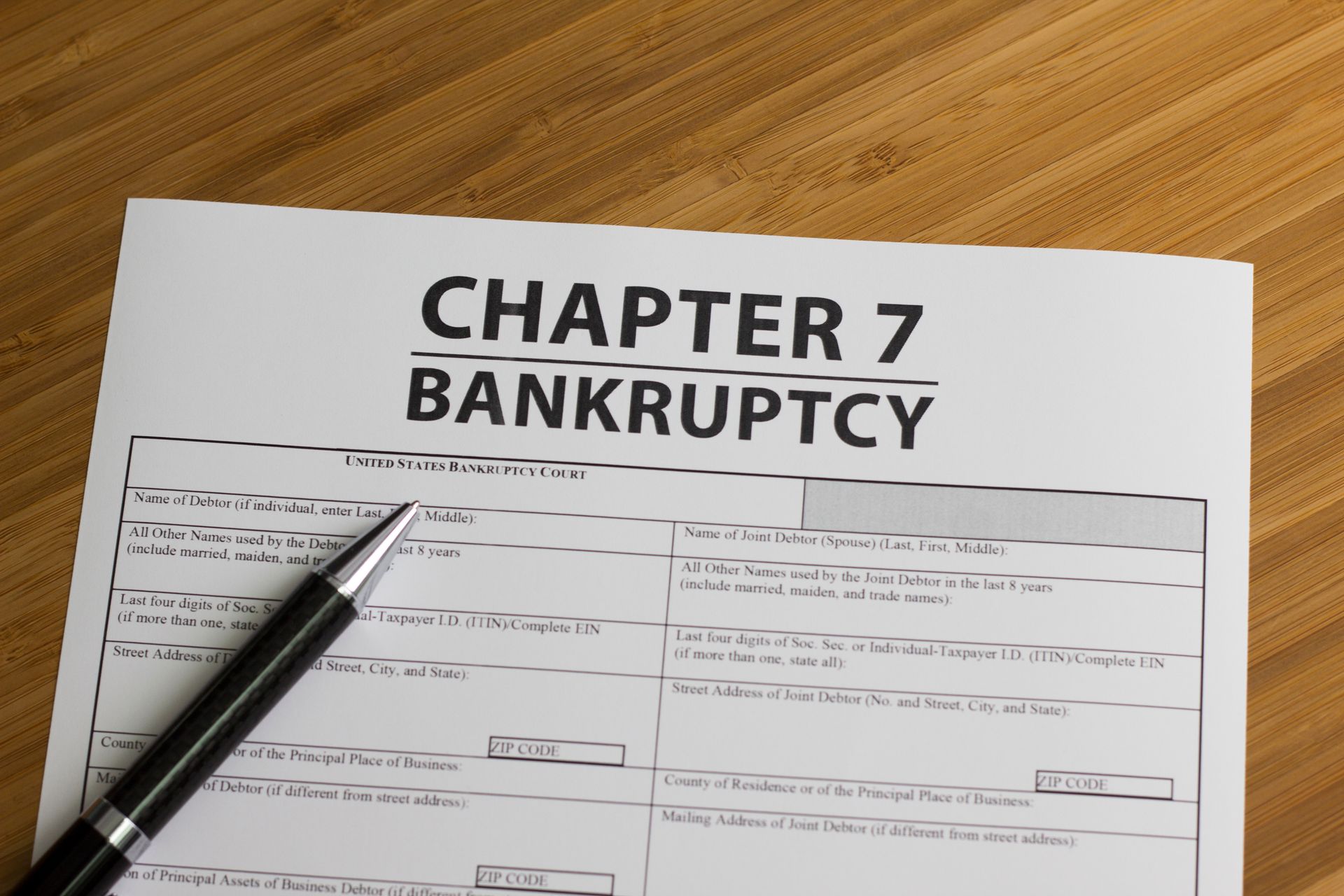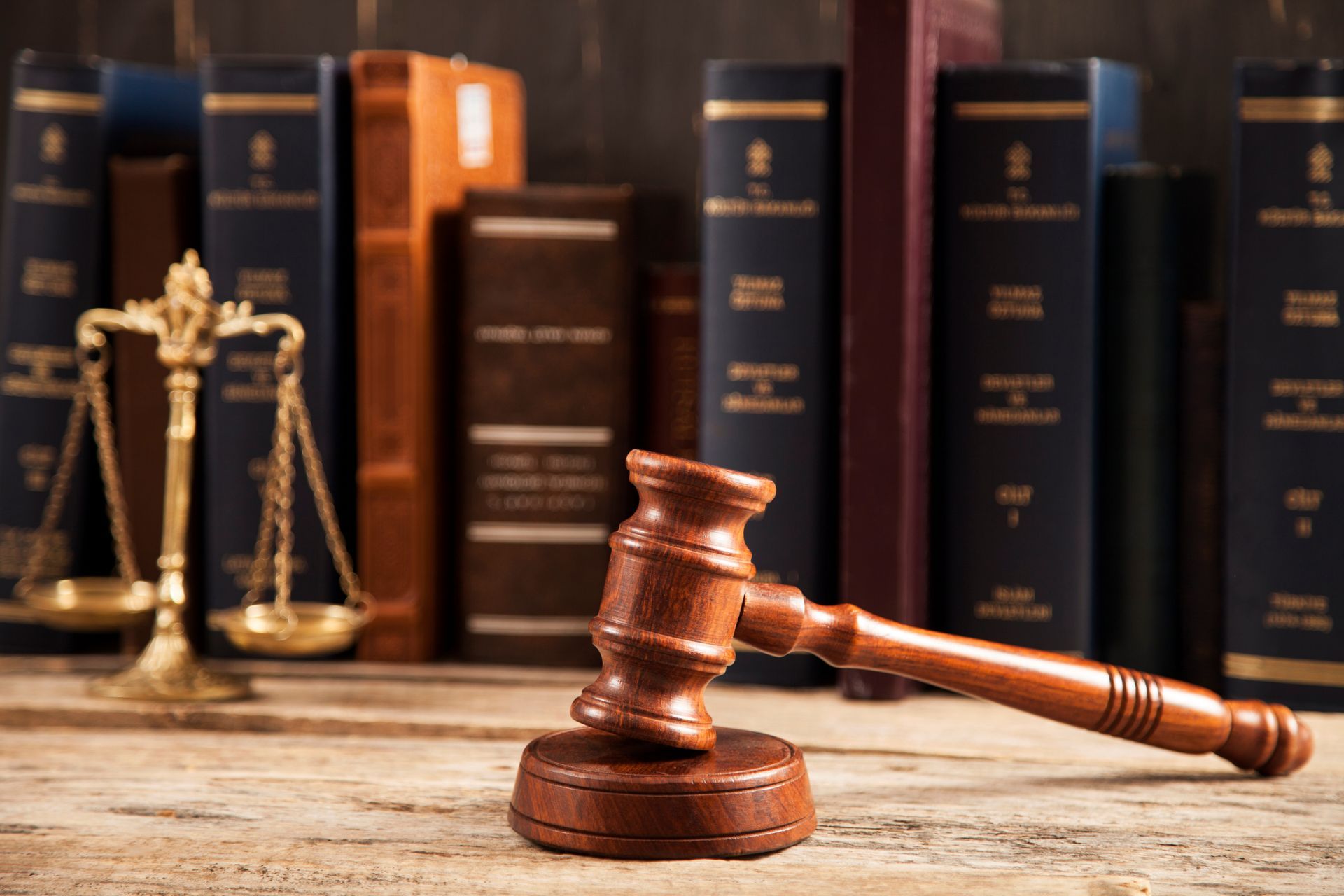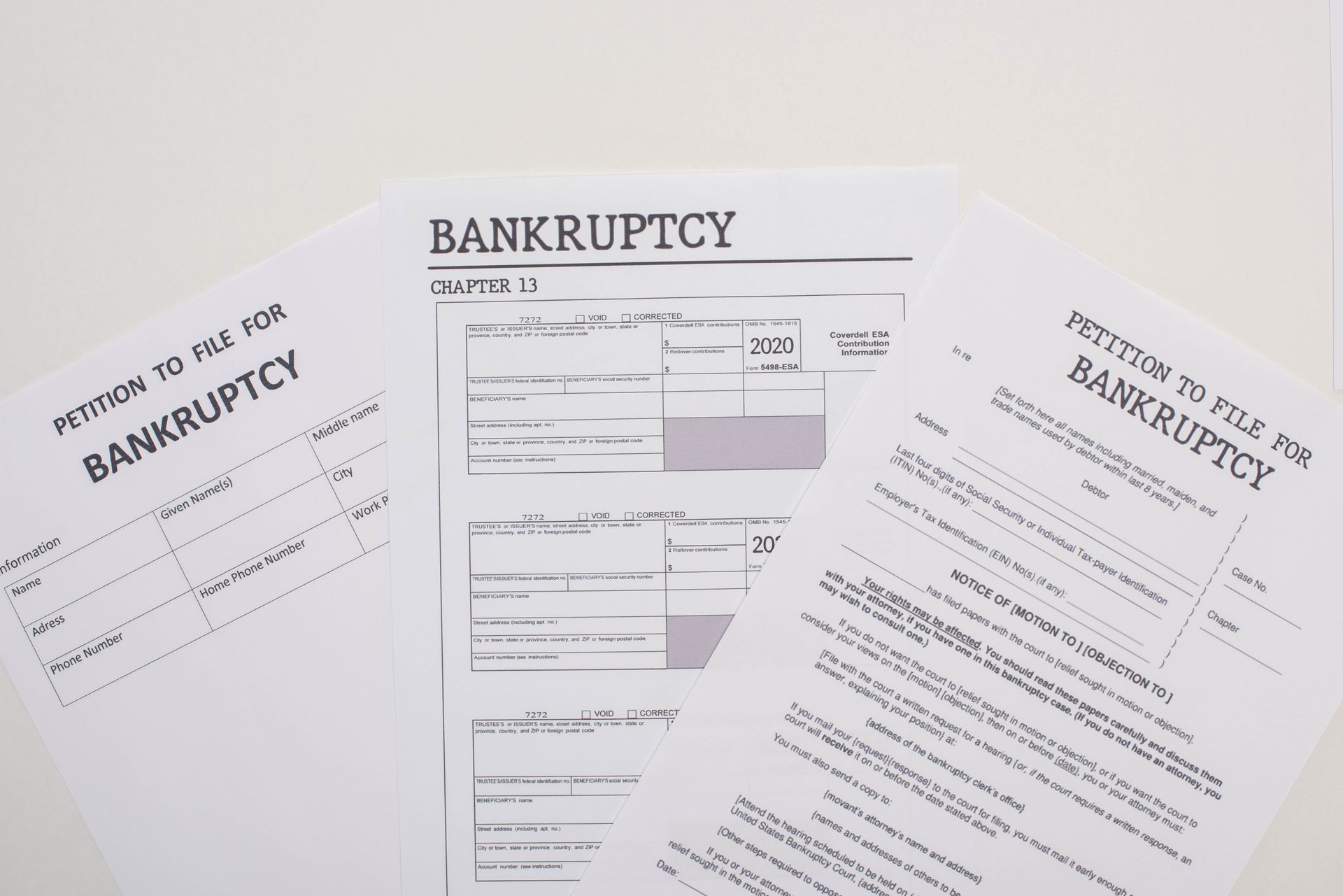Hours
- Mon - Fri
- -
- Sat - Sun
- Closed
Evening And Weekend
Appointments Available
Personal Bankruptcy in Colorado: Your Guide to a Fresh Financial Start
Facing overwhelming debt can be a stressful and daunting experience. Many people in Colorado find themselves struggling with mounting credit card bills, medical expenses, or unexpected financial setbacks. Fortunately, personal bankruptcy can provide a legal solution to help you eliminate or restructure your debts and achieve a fresh financial start. If you’re considering filing for personal bankruptcy in Colorado, it’s essential to understand your options and the potential benefits and drawbacks. In this post, we’ll explore the basics of personal bankruptcy, the types available, and how the process works in Colorado.
What is Personal Bankruptcy?
Personal bankruptcy is a legal process designed to help individuals eliminate or repay their debts under the protection of the federal bankruptcy court. The goal is to provide relief to those who are unable to pay their bills and to give them an opportunity to start over financially. In Colorado, like the rest of the country, personal bankruptcy is governed by federal law, specifically the U.S. Bankruptcy Code, but state-specific rules also apply.
Types of Personal Bankruptcy in Colorado
There are two primary types of personal bankruptcy available to individuals in Colorado: Chapter 7 and Chapter 13. Each type serves a different purpose and is suited to different financial situations. Understanding which one is right for you will depend on your income, the nature of your debts, and your financial goals.
- Chapter 7 Bankruptcy: Liquidation Bankruptcy
- Chapter 7 is often referred to as “liquidation bankruptcy” because it involves the sale of certain non-exempt assets to pay off creditors. In most cases, however, filers are able to keep most (or all) of their property due to exemptions.
- Eligibility: To qualify for Chapter 7, you must pass the Means Test, which assesses your income and expenses. If your income is below the state median for your household size, you automatically qualify. If it’s higher, the test will determine if you have enough disposable income to pay back some of your debts.
- Process: Once you file, the court appoints a bankruptcy trustee to oversee your case. The trustee will evaluate your assets, sell any non-exempt property, and use the proceeds to pay creditors. Most unsecured debts, such as credit card debt, medical bills, and personal loans, are discharged (eliminated).
- Timeframe: Chapter 7 typically takes 4 to 6 months to complete.
- Advantages: Quick process, complete discharge of most unsecured debts, no repayment plan required.
- Disadvantages: Potential loss of non-exempt property, does not discharge certain debts (e.g., student loans, child support, recent tax debts).
- Chapter 13 Bankruptcy: Reorganization Bankruptcy
- Chapter 13, also known as a “wage earner’s plan,” allows individuals with regular income to create a 3 to 5-year repayment plan to pay off some or all of their debts. Unlike Chapter 7, Chapter 13 does not involve the liquidation of assets.
- Eligibility: To file under Chapter 13, your secured and unsecured debts must be below certain limits set by federal law. You must also show that you have enough income to make regular payments under a court-approved plan.
- Process: You propose a repayment plan outlining how you will pay your creditors over the repayment period. The court and your creditors must approve the plan. Once the plan is completed, any remaining eligible debts are discharged.
- Timeframe: Chapter 13 typically takes 3 to 5 years to complete.
- Advantages: You can keep your property, stop foreclosure, and catch up on missed mortgage or car payments.
- Disadvantages: Requires a long-term commitment, ongoing payments to creditors, and does not discharge certain debts.
Which Type of Bankruptcy is Right for You?
Choosing between Chapter 7 and Chapter 13 depends on your financial circumstances and goals. Here are some considerations:
- Choose Chapter 7 If:
- You have mostly unsecured debts (e.g., credit cards, medical bills).
- You have few assets or your property is covered by Colorado’s exemptions.
- You want a quick discharge of your debts without a repayment plan.
- Choose Chapter 13 If:
- You have significant secured debts (e.g., mortgage, car loans) and want to keep your property.
- You are behind on your mortgage or car payments and need time to catch up.
- You have non-dischargeable debts (e.g., certain tax debts, child support) that you want to pay off through a structured plan.
Colorado-Specific Exemptions in Personal Bankruptcy
One of the most important aspects of filing for bankruptcy in Colorado is understanding the state’s exemption laws. Exemptions determine what property you can keep through the bankruptcy process. In Colorado, you must use the state-specific exemptions rather than federal exemptions. Some of the most common exemptions include:
- Homestead Exemption: Up to $75,000 in equity in your primary residence ($105,000 if you are disabled or over 60 years old).
- Motor Vehicle Exemption: Up to $7,500 in equity in one vehicle.
- Personal Property Exemption: Up to $3,000 for household goods, furniture, and clothing.
- Tools of the Trade: Up to $30,000 for tools, equipment, or books necessary for your occupation.
- Retirement Accounts and Pensions: Most qualified retirement accounts are fully exempt.
These exemptions can protect your property from being sold in a Chapter 7 bankruptcy and ensure that you can keep critical assets in a Chapter 13 plan.
The Personal Bankruptcy Process in Colorado
Filing for bankruptcy in Colorado involves several key steps. Here’s a brief overview of the process:
Pre-Filing Credit Counseling
- Before filing for bankruptcy, you must complete a credit counseling course from an approved provider. This course helps you understand your options and ensures that bankruptcy is the right choice for you.
Filing the Petition
- You or your attorney will file a bankruptcy petition and accompanying forms with the U.S. Bankruptcy Court in your district. This includes a list of your debts, assets, income, expenses, and recent financial transactions.
Automatic Stay
- Once you file, an automatic stay goes into effect immediately, halting all collection activities, including wage garnishments, foreclosure proceedings, and creditor harassment.
Meeting of Creditors (341 Meeting)
- About 30 days after filing, you will attend a 341 Meeting of Creditors. The trustee and any creditors who choose to attend can ask questions about your finances and the information provided in your filing.
Confirmation Hearing (Chapter 13 Only)
- If you filed under Chapter 13, the court will hold a confirmation hearing to review and approve your repayment plan.
Discharge of Debts
- If everything is in order, the court will issue a discharge order eliminating most of your eligible debts.
How the Law Offices of Andrew F. McKenna, P.C. Can Help
Filing for personal bankruptcy is a major decision that can have lasting financial and legal consequences. At the Law Offices of Andrew F. McKenna, P.C., we understand the complexities of bankruptcy law and are committed to helping Colorado residents regain control of their finances. Our experienced team will assess your situation, explain your options, and guide you through every step of the bankruptcy process.
If you are considering filing for personal bankruptcy in Colorado, contact us today to schedule a consultation. We are here to help you achieve a fresh financial start and a brighter future.




Schedule a Case Evaluation
Contact us now!
Homepage FCE Form
We will get back to you as soon as possible.
Please try again later.
By submitting this form, you agree to be contacted by our law firm, either by phone, text or by email.
Hours
- Mon - Fri
- -
- Sat - Sun
- Closed
Evening And Weekend
Appointments Available
We are a debt relief agency. We help people file for bankruptcy relief under the Bankruptcy Code.
The information on this website is for general information purposes only. Nothing on this site should be taken as legal advice for any individual case or situation. This information is not intended to create, and receipt or viewing does not constitute an attorney-client relationship.
All Rights Reserved | Law Offices of Andrew F. McKenna, P.C. | Powered By Convert It Marketing | Privacy Policy
All Rights Reserved | Law Offices of Andrew F. McKenna, P.C. | Powered By Convert It Marketing | Privacy Policy






